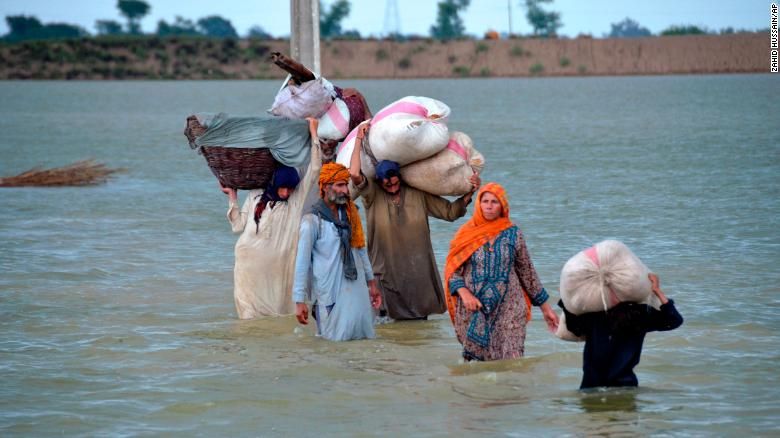33M Affected By Pakistan Monsoon Flooding
On Thu., Pakistan's minister of climate change said that at least 33M people have been impacted by flooding caused by monsoon rains. The devastating flooding has so far reportedly claimed at least 937 lives.

Facts
- On Thu., Pakistan's minister of climate change said that at least 33M people have been impacted by flooding caused by monsoon rains. The devastating flooding has so far reportedly claimed at least 937 lives.
- Rehman added that Pakistan is going through its eighth monsoon cycle, compared to the usual three or four, with over 400k homes destroyed. The country, already facing financial difficulties, has requested international aid.
- With around 15% of the country's population impacted, the hardest hit province of Sindh has requested 1M tents for housing. According to a UN report, 184k have so far been displaced.
- Officials are comparing this year's flooding to the monsoon rains of 2010, a year Pakistan experienced its worst rains on record and over 2k people died after nearly a fifth of the country was under water.
- Struggling farmers in the Sindh province, many of whom live hand to mouth and season to season, have reportedly lost at least 2M acres of farmland to the flooding.
- The provinces of Balochistan and Sindh have received around 11 and 27 inches of rain respectively this year, which is approximately 400% more rainfall than the 30-year average.
Sources: CNN, BBC News, Reuters, Guardian, and Al Jazeera.
Narratives
- Narrative A, as provided by Arab News. Though Pakistan doesn't contribute very much to global carbon emissions, climate change has its monsoon season highly erratic and unpredictable in terms of onset, intensity, and areas affected. Through little fault of its own, the country will continue to face these types of disasters. It's time to demand emergency climate action.
- Narrative B, as provided by New York Times. Pakistan's increasing monsoon disaster isn't only the result of climate change; government ineptness also plays a huge role. Cities lack basic government services, and poorly designed infrastructure is particularly vulnerable, allowing rains to wreak havoc.
- Narrative C, as provided by Financial Times. It's easy to dismiss any extreme weather event as a consequence of climate change, but in reality they're usually influenced by a myriad of factors that have nothing to do with it. More research is needed before we can establish any direct causal link between the two.






